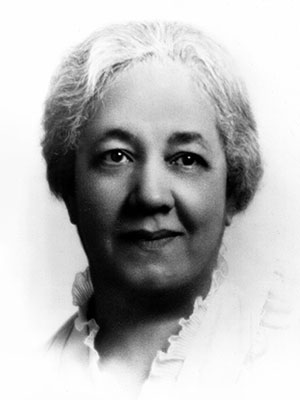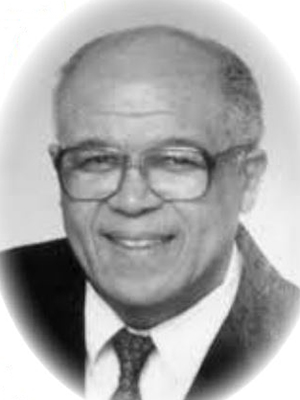Feb. 2, 2022 – In 2020, the Wisconsin Association of African-American Lawyers (WAAL) told the histories of 11 pioneering Black Wisconsin lawyers, in a booklet that was two years in the making.
These histories are in the booklet The History of Wisconsin’s Black Lawyers 2019, which discusses the lives of 11 Black Wisconsin attorneys from the late 1800s through the 1960s. It also provides a brief history of Black legal organizations in Wisconsin and lists a roster of Wisconsin Black lawyers from 1888 to 2018. The book is the culmination of research by members of WAAL.
The
booklet is archived on WisBar.org, along with
other legal history resources, including the history of
Wisconsin’s First 150 Women. Read more about pioneering Black lawyers in an
article by Celia Jackson published in the May 2019 issue of
Wisconsin Lawyer™ magazine.
In honor of Black History Month, we discuss two lawyers who made history in Wisconsin.
Mabel Watson Raimey: A Legacy of Firsts for Women Lawyers in Wisconsin

When
Mabel Watson Raimey (1898-1986) was admitted to the State Bar of Wisconsin in 1927, she was the first Black woman known to have graduated from a Wisconsin law school, and was the first Black woman to graduate from U.W.-Madison, earning a bachelor’s degree in English in 1918.
Raimey graduated from high school at age 14 and became a talented speaker and debater while attending Milwaukee Normal College. Raimey’s family was among the first African Americans to settle in Wisconsin.
Employed as a legal secretary in 1922, she was the first Black women to enroll in Marquette University Law School, in its evening program. When she successfully passed the Wisconsin bar exam and joined the State Bar in October 1927, she was also the 17th Black women in the U.S. to gain the distinction of being the “first” admitted in her state.
In 1927, there were few opportunities for women to become lawyers, and even fewer for women of color. She continued to work as a legal secretary until she could begin to practice law. She maintained a successful practice for many years, concentrating on family, corporate, and probate work.
As a Wisconsin lawyer, she became a founder and member of the board of directors for the Milwaukee Urban League, the Milwaukee Chapter of Alpha Kappa Alpha sorority, of her local church, and served as an organizer of a YWCA facility that served members of Milwaukee’s Black community. At her death in 1986, Raimey had received numerous honors and recognitions for her achievements as a pioneer for women in the law.
Today, a historical marker honoring Ms. Raimey stands outside Marquette University’s Sensenbrenner Hall on Wisconsin Avenue.
Read more about Raimey in the Marquette University Law School Faculty Blog article “Mabel Watson Raimey,” by Melissa Love Koenig, from Aug. 16, 2011.
James E. Jones: Brilliant, Beloved, Legendary U.W. Law Professor

James E. Jones (1924-2014) was a native of Little Rock, Arkansas, and a U.S. Navy veteran of World War II. Following the war, Jones earned a degree in government from Lincoln University in Missouri in 1950 and a master’s degree in industrial relations from the University of Illinois in 1951. He earned his law degree from U.W. Law School in 1956.
According to
The History of Wisconsin’s Black Lawyers, Jones was part of a talented team of attorneys at the U.S. Department of Labor, working on historic legislation, including the Civil Rights Act of 1964.
In 1971, he joined the U.W. Law School as its first Black faculty member. An innovator and pioneer in equal employment and affirmative action policy, he taught labor law and arbitration for almost 30 years. He wrote extensively on labor law, equal employment, and affirmative action.
Celia Jackson knew Jones. Jackson – a U.W. Law School graduate who is now retired after working in private practice and as a Milwaukee County assistant district attorney, an assistant dean at Marquette University Law School, and secretary of the Department of Regulation and Licensing in the Gov. Doyle administration –
wrote about him in the May 2019 issue of
Wisconsin Lawyer magazine:
Jim Jones … vigorously encouraged us all to work hard and be successful. He made an incredible difference by being instrumental in the Legal Education Opportunities (LEO) Program, which was designed to address the persistent problem of underrepresentation of lawyers from historically disadvantaged groups.
The History of Wisconsin’s Black Lawyers describes Jones as “a brilliant attorney, a beloved professor, and legendary figure at the UW Law School. He was one of the most esteemed and consequential members of the faculty whose leadership and impact will endure for future generations.”
In 2019, the
U.W. Law School announced an endowed faculty chair named in Jones’s honor. It is the first fully funded chair at U.W. named for a Black faculty member.
The chair will be awarded for the first time in August 2022.
For more histories, see “Remembering Wisconsin’s Black Lawyers,” by Celia M. Jackson, in the May 2019 issue of
Wisconsin Lawyer magazine.
